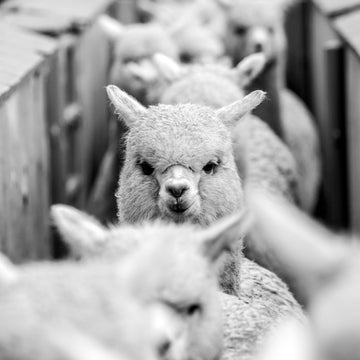Alpaca Fiber vs. Alpaca Wool: The Difference You Need to Know
The term "wool" is commonly used to refer to textile fibers, but it actually only applies to sheep’s wool. In the alpaca industry, the correct term is "alpaca fiber," as this fiber has unique properties that distinguish it from sheep’s wool.
![]()
Why "Alpaca Fiber" and Not "Alpaca Wool"?
Alpaca fiber is one of the most valued materials in the textile industry due to its softness, durability, and warmth. Unlike sheep’s wool, it does not contain lanolin, making it hypoallergenic and ideal for sensitive skin. Additionally, its structure is lighter and provides excellent thermal regulation, keeping you warm without overheating.
Key Differences
-
Hypoallergenic: Free of lanolin, perfect for sensitive skin and those with allergies.
-
Superior texture: Softer and silkier than sheep’s wool, without the scratchy feel.
-
Warmth without weight: Its hollow fiber structure retains heat efficiently while remaining lightweight.
-
Highly durable: Resistant to wear and less prone to pilling.
-
Sustainable: Alpaca farming has a lower environmental impact compared to sheep wool production, as alpacas require less water and their grazing habits are more eco-friendly.

Using the correct term is essential to highlight the unique properties of alpaca fiber. It is not only a softer and thermally efficient alternative but also a sustainable and responsible choice. At KUNA, we specialize in working with the finest alpaca fiber, offering high-quality garments that blend tradition and innovation for the conscious consumer.






